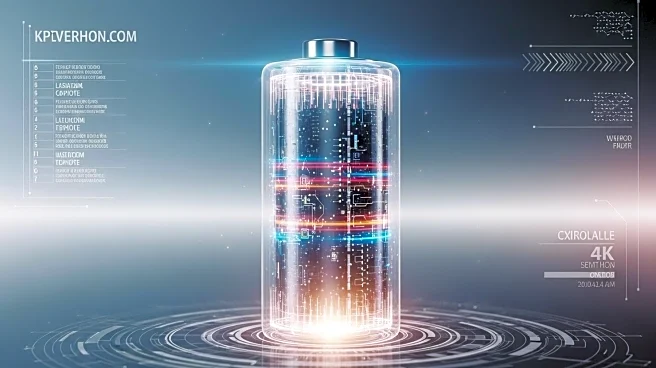What's Happening?
MIT scientists have developed a new model to better understand the mechanisms behind lithium-ion batteries, focusing on coupled ion-electron transfer (CIET). This process, where an electron travels with a lithium ion to the electrode, may explain the efficiency of these batteries. The research aims to guide the design of more powerful and faster-charging lithium-ion batteries, which are crucial for electric vehicles and portable electronics.
Why It's Important?
Understanding the fundamental mechanisms of lithium-ion batteries is critical for advancing battery technology. Improved battery performance can lead to longer-lasting and faster-charging devices, which are essential for the growing electric vehicle market and the proliferation of portable electronics. This research could drive innovations that enhance energy storage solutions, contributing to more sustainable and efficient energy use.
What's Next?
Further research may focus on optimizing the composition of electrolytes to enhance intercalation rates, potentially leading to more efficient battery designs. The findings could also inspire new approaches to battery manufacturing, aiming to reduce costs and improve performance. Collaboration between academia and industry could accelerate the development of next-generation batteries.
Beyond the Headlines
The study highlights the importance of fundamental research in driving technological advancements. As the demand for energy storage solutions grows, the ethical and environmental implications of battery production and disposal will become increasingly important. Researchers and manufacturers may need to address these challenges to ensure the sustainability of battery technologies.









